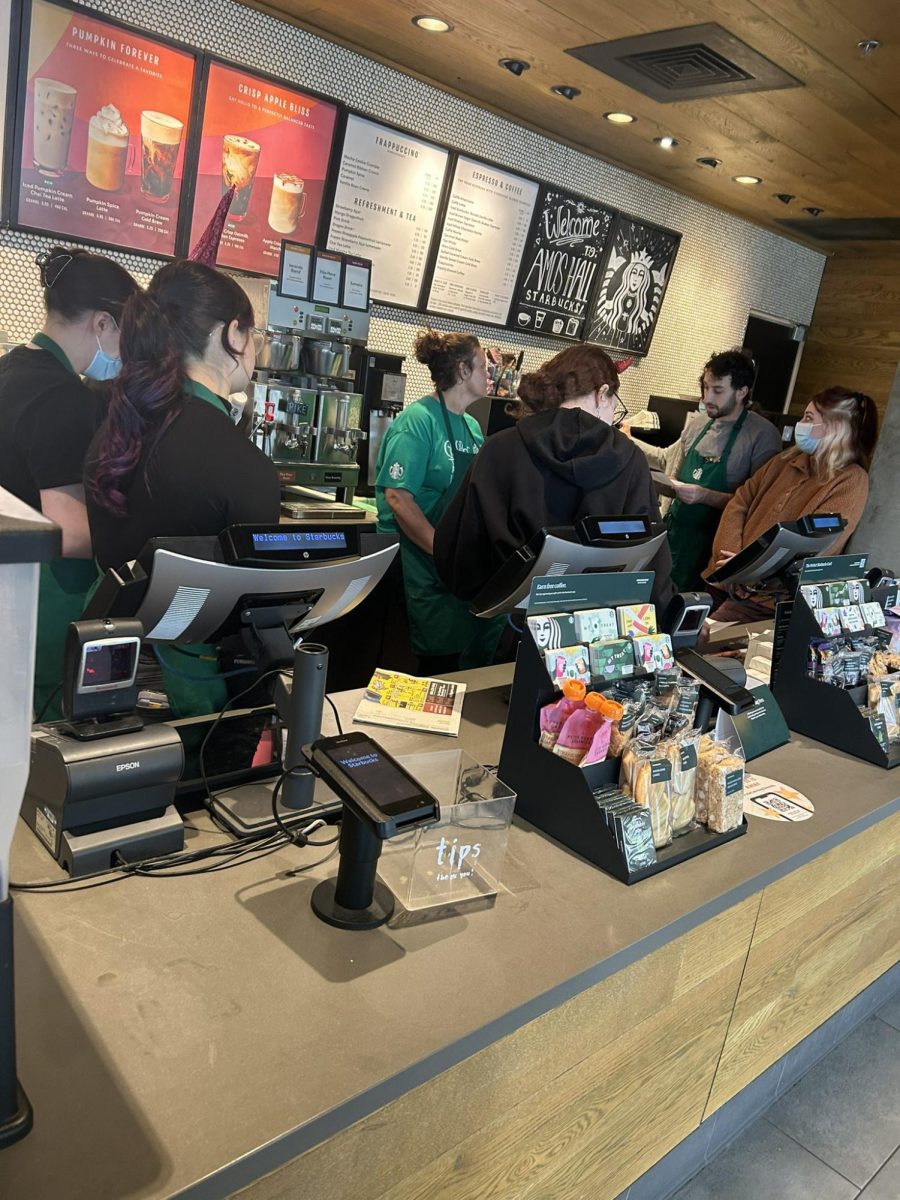When Casper Borowitz was in college, she picked up a job as a Starbucks barista in Philadelphia. Today, she and her team at the unionized Amos Hall Starbucks are walking out to protest understaffing on Red Cup Day, an annual event and one of the busiest days of the year where customers can receive a reusable holiday-themed cup.
Understaffing is one of many issues staff face that Starbucks refuses to address in its effort to make a quick profit, seemingly without concern for the employees it ironically calls “partners.” On Oct. 31, Borowitz, a shift supervisor and intern with the Starbucks Workers United union, led her staff in a march on the boss where they read out a list of demands.
On some days, there were 10 staffers working a slow shift and on others there were five fending for themselves during peak hours. The understaffing, the demands said, has led to partners taking time off, calling off sick or quitting.
It doesn’t take an ethicist to know this is wrong. Forcing workers to struggle through an understaffed shift while customers get antsy about drink orders not being fulfilled isn’t good for anyone. Starbucks Workers United is trying to improve the experience for workers and customers, but Starbucks is stonewalling them for a quick buck.
But perhaps the most egregious issue the Amos Hall workers face is that they were told not to wear union T-shirts because it was against Starbucks policy, a violation of a longstanding National Labor Relations Board decision that protected the right to wear union insignia at work.
There’s a reason that the workers were told not to wear their union shirts. Starbucks is afraid of the union. In July, a National Labor Relations Board judge ruled that Starbucks had illegally fired four Pittsburgh employees because of their union activities. It’s afraid because the union has power.
That power doesn’t spring from nowhere. It takes a collaboration between customers and employees to get a large corporation like Starbucks to listen. Today, Starbucks workers are asking for that collaboration.
Today, six Starbucks locations will be on strike: Amos Hall, Bloomfield, Craig Street, Eastside, Liberty & Baum and South Hills Village Mall. Don’t buy from striking locations where scab teams of workers may be sent in to undermine the union’s efforts.
Instead, take action and delete the Starbucks app right now. Mobile ordering has consistently caused problems for workers, Borowitz said, because a flood of orders overwhelms understaffed stores.
When the holiday drinks rolled out this season, mobile ordering meant that Borowitz and the Amos Hall workers were an hour behind on drink orders. If a customer ordered a drink at 2 p.m., the workers would be making it at 3 p.m. During a buy-one-get-one promotion, it took the team 30 minutes to get through orders made in a minute.
Borowitz has pleaded to have mobile ordering turned off on promotional days, but Starbucks has not implemented any changes that would make baristas’ lives easier.
The app also functions as a bank for Starbucks. After loading cash onto the app to make a purchase, it’s nearly impossible to get it back, so Starbucks has that money even if you don’t spend it on a drink.
A mass of customers deleting the app will show up in Starbucks’ statistics and send a powerful message to take the union’s concerns seriously. Amos Hall is holding a delete-the-app event from 12:30 p.m. to 3 p.m. where those who delete the app will receive free union merchandise.
Borowitz is also organizing a group of student solidarity leaders to well up support among younger customers. A large percentage of Starbucks’ customer base is students and Gen Z, so having their support is vital to making an impact.
If you want to get involved, several Starbucks locations will have picketing and rallies today from 10 a.m. to noon, including the Shadyside Starbucks at 730 Copeland St. The union is calling on students to join and help spread the word at these events and beyond.
But above all else, don’t buy from striking Starbucks locations today. Starbucks has shown a callous lack of empathy and concern for its so-called “partners.” It is our moral responsibility to support the workers Starbucks won’t.
There’s no pumpkin spice latte worth the cost of human suffering.



